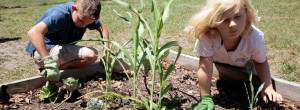 Just the word “addict” makes us cringe! Then to think that our child or husband may be an addict is certainly unsettling, even devastating. Despite our best efforts at convincing, controlling and cajoling the addict to quit they keep on. And despite all the tragic events and difficulties they just keep on. Truly we are baffled and most of us in the helping professions have been confused and frustrated by trying to help these people.
Just the word “addict” makes us cringe! Then to think that our child or husband may be an addict is certainly unsettling, even devastating. Despite our best efforts at convincing, controlling and cajoling the addict to quit they keep on. And despite all the tragic events and difficulties they just keep on. Truly we are baffled and most of us in the helping professions have been confused and frustrated by trying to help these people.
So what can you do? I tell folks that if you are going to cure addiction you have to understand the addict. There are a lot of myths about addiction, that if held onto, can actually can contribute to the problem. Even mental health professionals are still working on outdated models of assisting families and their loved ones. The culture that we live in devalues asking for assistance, the idea of helping one another.. Having addiction in the family can cause family members to feel shame. These dynamics can cause families to isolate and control, desperately trying to help in ineffective ways. This can lead to increased shame and more acting out by not just the addict but by family members themselves. So misguided, misinformed methods make things worse!
Most of us are going to be traumatized by the substance using of our loved one. Susan Johnson, an attachment theorist that developed Emotional Focus Therapy, defined trauma as a psychological wound that leaves us feeling helpless and hopeless. This is how spouses and parents of addicts often feel. When human beings are traumatized, physically, emotionally, mentally, the mind contracts to a form of tunnel vision. Our assessment of the situation is inaccurate and our reaction is off the mark. We will spin into anxiety and shame and become controlling and reactive. We are often reliving some of the same trauma from our childhood. I would not trust such a mind for solid decision making.
This sense of losing everything important, the trauma, reinforces a need to isolate. The isolation will reinforce, make stronger the anxiety around having substance abuse in the family. Our American culture values “being strong,” and devalues being vulnerable. Paradoxically what we are typically running from is fear…..”what will people say? (when they find out my son is an addict)” or “what does it feel like to me to have no control?” So in a round about way it takes courage to face the pain, and relief that I do not have to have all the answers.
Working with professionals and support groups like Al Anon leads to the most important part of helping the addict….getting help for yourself. Research consistently confirms that people are happier when they have loving relationships and talk about their problems. So getting help for yourself stabilizes the mind. Once the mind is stable, it can become more malleable, flexible to entertain new concepts about the nature of addiction. The open mind will also become more intuitive about how to help my particular addict. This openness can also be conducive to loving our addict, a powerful force in getting better.
We learn to soften toward the addict when we understand that their destructive behavior has to do with impaired neurological functioning, that may have been genetic or due to childhood experiences. Family members learn that their loved one is not of sound mind, their mind so impaired that they can not control their use. Families can learn that the addicted person is suffering, and deserves compassion like we all do. So the first step in getting help for our addict is to begin the process of understanding, forgiving and loving our addict.
by Andy Quinn











